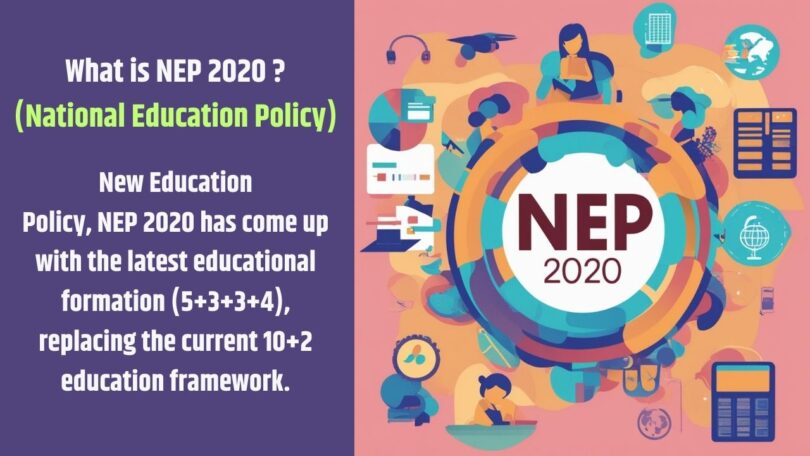Are you searching for – What is NEP 2020 ? (National Education Policy)
Then you are at Right Place.
The Complete and Official Information of What is NEP 2020 ? (National Education Policy)
What is NEP 2020 ? (National Education Policy)
Interestingly, nothing has changed, but when we look back and envision, things appear so distinctive! From chalk talks to smart talks, we humans have indeed crossed a long path. The globe is rapidly evolving when it comes to the knowledge and learning landscape. It is safe to state; there has been a subtle shift from highly reliant on content to “learning how to learn”, making it vital to address these alterations and cater to future needs.
NEP 2020 (National Education Policy) solely aims to redefine the entire education system and was put in place by the Union Cabinet of India in 1986 and, since then, has gone through many transformations. NEP 2020 (the latest national education policy approved in July 2020) ushers some exceptionally promising notions that will bridge all the gaps.
National Education Policy 2020 is typically based on the five paramount pillars that are in line with the 2030 Agenda for Sustainable Development.
The Paramount Pillars are-
- Access
- Equity
- Quality
- Affordability
- Accountability
NEP focuses on extracting and bringing students’ hidden talent over the table by improvising the education system. Not only this, but it also aspires to provide kids with equitable and inclusive learning surroundings.
The Modi Cabinet on Wednesday approved the much-awaited National Education Policy (NEP), 2020, which aims to revamp all aspects of India’s education system and bring it closer to the best global standards.
Pre-primary education:
The NEP aims to universalise the pre-primary education (age range of 3-6 years) by 2025 and provide foundational literacy and numeracy for all by 2025.
Universal access to education:
To reintegrating dropouts and ensure universal access to education, the NEP has set an objective to achieve access and participation in free and compulsory school education for all children in the age group of 3-18 years by 2030.
New Curricular and Pedagogical Structure:
The NEP proposes changing the existing 10+2 Curricular and Pedagogical Structure with 5+3+3+4 design covering the children in the age group 3-18 years.
Making India a global study destination
The NEP aims to promote India as a global study destination providing premium education at affordable costs. An International Students Office at each institution hosting foreign students will be set up. High performing Indian universities will be encouraged to set up campuses in other countries.
No hard separation of arts and sciences:
The new education policy aims to give students increased flexibility and choice of subjects to study across the arts, humanities, sciences, sports, and vocational subjects. Departments in Languages, Literature, Music, Philosophy, Indology, Art, Dance, Theatre, Education, Mathematics, Statistics, Pure and Applied Sciences, Sociology, Economics, Sports, Translation and Interpretation, etc. will be established and strengthened at all higher education institutions (HEIs).
Education in local language:
Since children learn languages most quickly between 2-8 years, and multilingualism has great cognitive benefits for students, children will be immersed in three languages early on, from the Foundational Stage. The three-language formula, followed since the adoption of the National Policy on Education 1968, and endorsed in the National Policy on Education 1986/1992 as well as the NCF 2005, will be continued, keeping in mind the Constitutional provisions and aspirations of the people, regions, and the Union.
Also known as New Education Policy, NEP 2020 has come up with the latest educational formation (5+3+3+4), replacing the current 10+2 education framework. Underneath mentioned steps will explain to you precisely. So, have a look to know.
- The 5 Years of Foundational Stage for kids between 3-8 (For classes: Anganwadi or pre-school, class 1 – 2)
- The 3 Years of Preparatory Stage for kids between 8 to 11 (For classes: 3 to 5)
- The 3 Years of Middle Stage for kids between 11 to 14 (For classes: 6 to 8)
- The 4 Years of Secondary Stage for kids between 14 to 18 (For classes: 9 to 12)
I hope you are satisfied with my answer!

